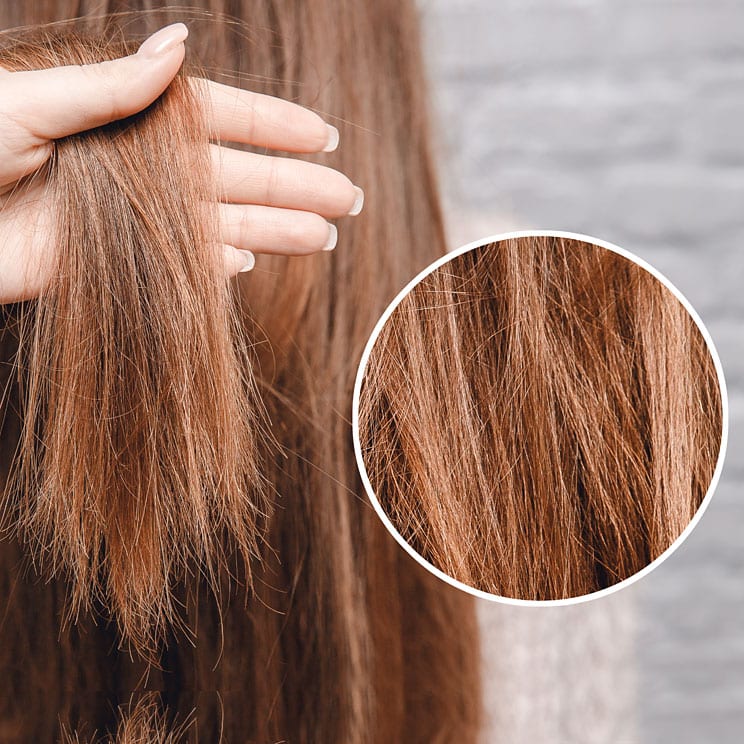The Ultimate Guide on How to Fix Dull Hair: Products and Lifestyle Tips
Hair that looks healthy has brilliance, shine and luster. Dull hair lacks all of these traits, and may instead appear and feel frizzy, rough or weighed down. When hair with a coarse texture becomes dull, it may also be dry and difficult to manage.
The accumulation of buildup or damage can diminish shine. Hair and overall health also affect the appearance of hair, particularly eating a nutritious diet. Find out more about common causes of dullness and learn how to fix dull hair.

Dry hair is not the same as dull hair, though hair with a dull look may also be dry. Dry locks do not have enough moisture, whereas hair that is dull doesn’t shine. In addition to having a matte finish and not reflecting much light, dull strands may also have a rough texture. While coarse hair may be dull, coarseness is a natural texture and dullness is a hair condition.
A wide variety of external and internal factors can contribute to dullness. Exposure to the elements, use of the wrong dull hair products and overstyling originate outside the body. Poor nutrition, insufficient water intake or health conditions could be internal contributing factors.
Hair health is related to your overall state of well-being. Nutritional deficiencies and thyroid conditions are two of the most common internal causes of dull hair. Hormonal fluctuations during pregnancy or during the use of medication may also temporarily diminish the luster of your locks. Medical guidance is helpful for addressing any internal underlying causes of dullness.
You may experience nutrition-related hair problems if your diet is too low in Vitamins A, B, and C and minerals such as iron, silica and zinc. Eating lean protein sources, vegetables and fruits can provide your body with the omega fatty acids and proteins necessary to support hair health.
Using the wrong hair products or too much product may also result in dullness. Depending on the formula, hair might immediately seem more dull or become dull over time. Accumulated buildup may block hair follicles and weaken shafts, resulting in a lifeless look and leading to breakage and hair loss.
Styling damage is another common cause of dull tresses. From overprocessing hair with harsh chemicals to styling your strands with high heat, damage is one of the fastest ways to diminish natural shine. You may notice that your hair quickly becomes less dull if you can prolong the period of time between any of these treatments.

If your hair is oily and dull, you may need to wash your hair more frequently. Be aware that very greasy strands often result from overwashing. Reducing the frequency with which you shampoo may bring oil levels into balance, though an adjustment period of a few weeks may be necessary. Hair may appear oily during this time, but your scalp should self-regulate and become more manageable.
One of the primary causes of dull hair is hard water. Water that contains high mineral content can leave behind a dulling residue even if you use the best dull hair products. Installing a shower filter can improve the quality of water by filtering out minerals that cause buildup before they reach your hair.
In general, natural shampoos may not be effective for eliminating the residue that hard water leaves behind. You may need to use a clarifying formula that contains sodium EDTA or other chelants. Regardless of water quality, you should always make sure that any shampoo you use gets rid of buildup with completely stripping away natural oils.
It may be helpful to use a nourishing shampoo on a regular basis and do a clarifying treatment once a week, twice a month or even once a month. If you are looking for products to clarify hair, be sure to choose gentle formulas that are safe for your hair condition and texture.
Frequent exposure to chlorinated pool water or salt water can also dull hair over time if you don’t wear a swim cap. If your hair is naturally dry, you may want to dampen strands and apply a coat of conditioner before you put on a cap. When you get out of the water, cleanse your hair and apply more conditioner before rinsing.
Environmental stress also causes hair to become dull. Strands may become dry and damaged after prolonged exposure to the damaging rays of the sun. Cold weather and wind also take a toll on the moisture balance of the scalp and strands, making hair more dry and dull-looking. You may want to switch out styling products based on your lifestyle and the season of the year.
Dull hair products that provide UV protection and heat styling protectant can limit the two sources of damage most likely to cause dullness. Exposure to dry weather or high winds can also take a toll on your hair. You may also want to wear a hat during any extended period of time you spend outside and put hair in a protective style such as a braid or bun.
Shine spray formulated for your hair condition and texture can be a quick fix for dullness. Look for formulas that have ingredients that nourish and protect strands in addition to providing a temporary boost of brilliance. Depending on the ingredients in these products, it may be necessary to use clarifying shampoo to keep buildup at bay.

Dry hair is lacking in moisture. The scalp of a person with dry hair tends to produce less natural sebum and the cuticles of hair in this condition may be lifted due to damage or hair texture. Moisturizing hair care and styling products can rehydrate dry, dull hair and protect strands from moisture loss.
If you have dry hair, restore shine with moisturizing shampoo and conditioner. Using a deep conditioner or applying a hydrating mask once a week or every two weeks can also be helpful for bringing moisture levels into balance. Rinse hair thoroughly after every treatment to reduce buildup.
The use of oil can transform the appearance of dull dry or normal hair types of any texture. Argan, coconut and sunflower oils are popular choices for restoring sheen to strands. Try mixing a little oil into your conditioner or a styling product or do an overnight oil treatment before washing your hair.
Hair that is not dry but that looks dull due to damage or other underlying conditions may benefit from using clarifying and nourishing formulas. If your hair is color-treated, you should make sure that any dull hair products you use are color safe.
Natural oil or sebum produced by sebaceous glands in the scalp plays an essential role in producing the appearance of shine. If sebum does not have time to travel down strands in between washings, your hair will be more likely to appear dull and be prone to damage due to environmental stress, friction and styling.
Use a conditioner formulated for your hair type. You may want to use shine-enhancing products for dull hair, but be wary of silicone-based smoothing formulas. Non-water soluble forms of silicone may make dullness worse by leaving behind residue on the scalp and strands.
Hair of any type can benefit from a cool water rinse to close cuticles. You may also want to try an herbal or natural rinse such as chilled chamomile or green tea or a teaspoon of vinegar diluted with four cups of water. After pouring this rinse through, continue to rinse hair with cool water until tresses are completely clean
The styling products you use and the way you handle your hair can also cause or intensify dullness. If you use formulas that leave behind buildup or have hard shower water, you may need to use clarifying treatments to unblock hair follicles and bring out natural shine.
Heat styling and chemical processing can damage hair and cause it to look dull. This is particularly the case when high heat is applied to hair for extended periods of time or on a daily basis. Even a high-quality heat protectant may not be able to preserve the health of hair that constantly undergoes harsh treatments.
If you must blow dry hair, try to wait until strands are mostly dry. Limiting the amount of time you spend blow drying, using the lowest heat setting possible, maintaining a distance of at least six inches and putting on a diffuser or smoothing attachment may limit thermal and friction damage.
Heat styling tools such as curling and straightening irons directly expose hair to even higher heat. If your hair is dull or damaged, you may want to reduce the frequency with which you use these tools. It is also a good idea to try to reduce the frequency of color or texture processes.

While dry shampoo can be a lifesaver for people with oily hair, powder-based formulas make most hair look more matte and therefore dull. If you already have dull hair, shampoo powder can make the problem worse in the short- and long-term. Even a spray dry shampoo that does not cause as much of a dulling effect can still introduce buildup and dull strands over time.
Rather than using dry shampoo, it may be better to look for ways to prolong a style for two or more days of wear or wash your hair with a gentle non-clarifying cleanser as needed. Some styling products are formulated to refresh the appearance of a style and renew surface shine.
One of the most important things to consider when selecting products for dull hair is the condition, texture and type of hair. Hair that is naturally dry may benefit from products and formulas that are not suitable for use on an oily scalp and strands. Clarifying products that eliminate buildup can also cause color-treated hair to lose vibrancy prematurely.
No matter which products you use, you should always rinse your hair thoroughly after shampooing and conditioning. Residual product is a common cause of sudden dullness. If you notice your hair gradually becoming dull, cumulative buildup from hair care or styling products is probably the culprit. Consider stopping the use of products that leave behind traces and switching to cleaner formulas. Clarifying treatments only have temporary results and are harsh on damaged, dry or processed hair.
It may take time to restore shine to hair, even if you are using the best products for dull hair. If your hair is very damaged, losing some length may be the best option. When it comes to how to fix dull hair, you will need to address the factors contributing to dullness or dryness. Reducing the frequency of damaging styling treatments or adjusting your hair care routine can improve hair condition and give new growth a healthy sheen.
How to Fix Dull Hair – Your Essential Guide
What is Dull Hair? Dull hair is the result of a lack [Read More...]
Best Tips for Improving Dull Hair Color
When you look in the mirror, do you see dull or faded [Read More...]
Keeping Your Hair Color Vibrant
Getting your hair freshly cut and colored can make you feel like [Read More...]
Get the Best Hair of Your Life in 2019
Everyone knows that how you feel about your hair can change the [Read More...]





